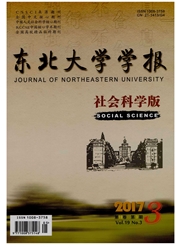

 中文摘要:
中文摘要:
以"价值—资源—影响力—环境"为核心要素的分析模型可以深入阐释政府与大学交换行为的微观机制。以信息、权力、制度和地位四类资源为基础,将政府与大学的交换区分为信息控制、自由裁量、制度供给和身份认定四类模式,并认为这四类模式分别是政府与大学交换的神经网、核心、保障和助推剂。在交换关系的构建中,政府和大学受到来自法律、社会、上级和市场等方面的约束。社会规范、行政改革、法治进程、市场机制及其之间的相互作用则推动着双方交换价值、资源和影响力的变迁。
 英文摘要:
英文摘要:
The analysis model based on the core elements of value,resources,impact and environment may throw light on the microscopic mechanism of government and university exchange behaviors.Based on the four types of resources—information,power,system and status,information control,exercise of discretion,institutional supply and status identification constitute the basic models of government-university exchange,which serve as the neural network,core,guarantee and booster of government and university exchange behaviors.In the construction of exchange relationship,governments and universities are bound by the laws, society, superiors and markets. Moreover, social norms,administrative reforms,legal process,market mechanism and their interaction promote the changes of exchange value,resources and impact of the parties involved.
 同期刊论文项目
同期刊论文项目
 同项目期刊论文
同项目期刊论文
 期刊信息
期刊信息
